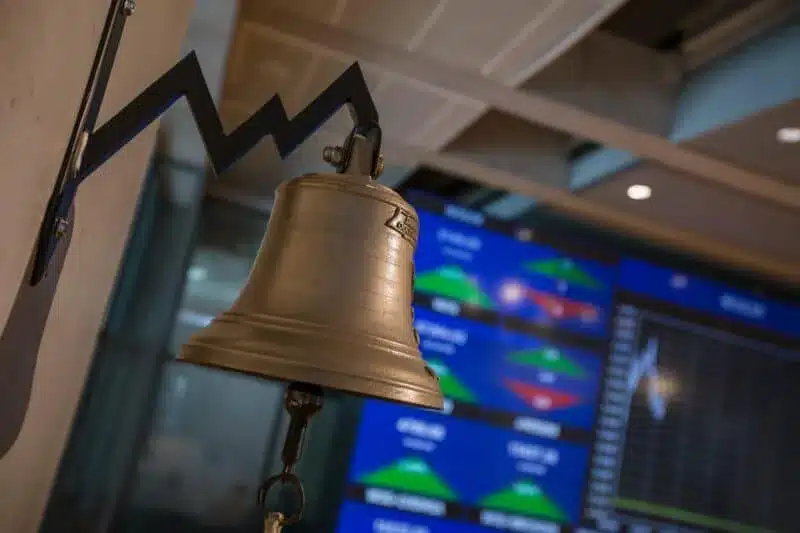The debut of Żabka, a convenience store chain in Poland, is causing a lot of excitement. The demand for shares was moderately satisfied, potentially leading to a rise in the share price, similar to the success of Allegro, whose shares climbed more than 40% in a fortnight.
The issue price for the Żabka Group has been set at 21.5 PLN (Polish Zloty), which is the maximum value in the range. This price applies to both individual and institutional investors. The offer involves the sale of 300 million shares, implying an offer value of 6.45 billion PLN. As such, Żabka will become the 12th biggest company on the Polish stock exchange, while its IPO is the fourth-largest debut in the Warsaw Stock Exchange history. For this reason, Żabka will outstrip Allegro, PKO BP, and PZU.
“This is the biggest debut for four years, when Allegro raised 9.2 billion PLN during its IPO,” says Tymoteusz Turski, stock market analyst at XTB, in an interview with MarketNews24. “This debut is a good signal for our entire stock market as investors have found that the interest in purchasing Żabka shares was very high.”
The high interest is confirmed by the extensive oversubscription of shares for both individual and institutional investors.
Żabka was founded in 1998 in Greater Poland. The first stores opened in Poznań and the nearby town of Swarzędz. In 2007, the company was acquired by Penta Investment for over 500 million PLN, which continued to develop the chain of stores. After four years, the owner changed again, becoming Mid Europa Partners (the final sale price was between 380 and 400 million EUR).
By 2015, the chain had approximately 4,200 outlets. Ideas emerged about transforming Żabka into a “one-stop-shop” where the range of services far exceeded a regular store. Another key step occurred in 2017 when CVC Capital Partners took over a controlling stake in the company, with a valuation of over 1 billion euros. The pressing need to utilise modern technology and change store formats was increased, as well as expanding logistics centres and slightly altering the operating model. More emphasis was placed on including the Quick Service Restaurant (QSR) service in Żabka; the implementation of self-service nano-stores, eGrocery service (Jush! and delio), and investment in the catering segment (Maczfit and Dietly) was also introduced.
Żabka is a successful example of scaling a business model for over 20 years. Initially, the company was a minor player, but after two decades it has become a leader in its market segment (convenience stores). By the end of June 2024, the Żabka network will have 10,640 stores, with its growth based on franchisees.
The average time a customer spends in Żabka is 106 seconds, with half of that spent at the checkout. It is important for Żabka for the customer time spent in the shop to be as short as possible. This is because Żabka aims to be a place where one saves time, making shopping as hassle-free as possible. The company uses algorithms to analyse customer movements around the shop, estimate individual store sales, or expected cannibalization of stores.
The company estimates that 17 million Poles live no further than 500 metres from the nearest Żabka. This ubiquitousness means that the stores meet impulsive needs. Żabkas need to be places where you can quickly purchase products for speedy consumption, whether it be a drink, a sandwich, a hot dog, or yoghurt. The company’s bosses assess that Biedronka, Lidl, or Auchan are not competitors; people go to these shops for different reasons than to Żabka. Much greater competition, for example, comes from instant product delivery apps or local neighbourhood shops. What alarms some analysts is the already mentioned cannibalization of some outlets; however, the company believes that multiple Żabkas in areas with a high concentration of people, or even up to four Żabkas within a 500-metre radius, is not an issue.
When evaluating business models, a crucial parameter is the number of stores in the network and the closing and opening of Żabkas. In the years 2021-2023, from 0.6% to 0.8% of stores closed their operations, possibly because the shop did not generate expected profits for the franchisees or the management consumed more time than the earnings warranted.
“Żabka should prove to be a very good short-term investment due to the high oversubscription during the share subscription, which has created an unsatisfied demand, and therefore there is a strong belief that there will be a lot happening from the first day of listing its shares,” comments an XTB expert. “For a reminder, the share price of Allegro rose by more than 40% within a fortnight from its debut.”
Interest in Żabka shares after its debut day should be boosted by institutional investors, especially index funds interested in assets included in the WIG20 index. The company’s market capitalization based on the valuation of its shares on its debut day should guarantee Żabka the 11th position among the 20 largest companies on the Warsaw Stock Exchange. If the following weeks do not bring a significant weakening of quotes, a place in the WIG20 will be secure. It should also be one of the most liquid Warsaw Stock Exchange companies.
Significantly, the current shareholders are the sellers, meaning no funds from the IPO will go to the Żabka Group. The biggest seller is the major shareholder, Heket Topco. Despite not receiving funds from the sold shares, the company will incur IPO-related costs, which the Żabka Group estimates in their prospectus to be between 35-40 million PLN.
“However, looking long-term, bear in mind that the share price of Allegro is now listed below its fantastic debut,” adds Tymoteusz Turski from XTB. “The rise in Allegro’s share price was then so substantial that no Allegro strategy would have been able to justify such a sharp rise in market capitalization.”
Source: https://managerplus.pl/debiut-zabki-na-gpw-szybki-wzrost-kursu-na-wzor-allegro-63505
